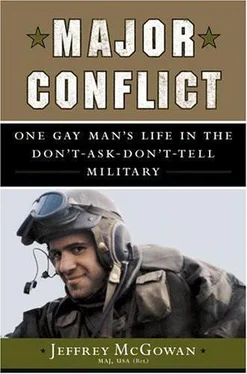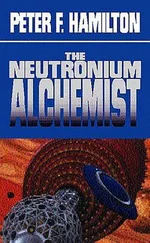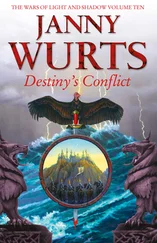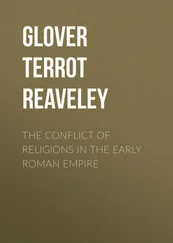I grew up on Eighty-second Street, right across the street from St. Joan of Arc, the Catholic church where I went to grade school every day and to Mass every Sunday. My family was Protestant, but since the Catholic school was the best in the neighborhood, I was duly baptized and then spent the next sixteen years of my life as a student in the Catholic educational system. I have fond memories of getting up every day and putting on my uniform: the gray polyester trousers, the green jacket, the white shirt with the green clip-on tie, and then walking out the front door of my apartment building and simply crossing the street to school. The nuns still wore habits in those days and didn’t think twice about smacking you one good if you got out of line.
It was in the school yard of St. Joan of Arc when it first became clear just how much I wanted to be a soldier. Like most young boys I got pretty rambunctious in the school yard, wrestling, fighting, chasing this boy or that girl, but what I loved most of all was playing war games—staging epic battles, killing spies, chasing down the enemy. On one occasion I got so involved in being a dive-bomber that I ripped my jacket straight up the back and was sent home by one of the nuns with a note reading, “Please take a moment to explain to young Jeffrey that he is not, in fact, a Stuka dive-bomber, but rather a student who needs to learn how to behave like the fine young gentleman we at St. Joan of Arc know him to be.”
Once a week I was allowed to go out for lunch with my friends. I was given $1.25, which bought me a slice of pizza, a Coke, and some penny candy. My friends and I were pretty much free to explore the neighborhood after school and on weekends as long as we returned home in time for dinner. The neighborhood was tight-knit, everyone knew everyone else, so nobody really worried. How things have changed! When I think of the paranoia today, of the stress parents seem to be under, worrying about the safety of their children even when they’re just down the block, I can’t help thinking that I grew up in a kind of golden age. It sounds funny, since the truth is that my childhood coincided precisely with the city’s fiscal crisis of the 1970s, when the crime rate skyrocketed, the city’s reputation plummeted, and everyone else in the United States became convinced that New York City was one of the most dangerous places on the planet. But believe it or not, growing up in Jackson Heights in the 1970s, long before things turned around under Rudy Giuliani, I never once was threatened or felt unsafe. Who knows, maybe I was just plain lucky. Then again, I think Jackson Heights was, and is, a pretty special place.
My parents were quite young when they had me, so it was decided that I would be raised by my maternal grandparents. They raised me as if I were their own son. My grandmother was from Ohio, the daughter of Scottish immigrants. My grandfather was English, first generation. For forty years he took the subway to Twenty-third Street to go to work at the Metropolitan Life Insurance Company. One of my most vivid memories is of him walking down Eighty-second Street, on his way home from work. My grandmother and I made a habit of waiting for him every day on the stoop of our building. Around five-thirty he’d come into view, striding toward us, always wearing a hat and puffing on a big cigar, looking very much the gentleman, circa 1950. He had a great sense of style and a kind of old-world outlook that allowed for a healthy joie de vivre and professional success at the same time.
As a little boy I was in awe of him. He was the most generous, kindest, smartest man in the world as far as I was concerned. Two or three times a week, sitting on the stoop with Grandmother, I’d notice a brown paper bag at his side as he approached, and I’d stand up and rush to meet him, knowing that the bag held a gift for me, usually a toy soldier or tank, a toy gun or knife, or later, a Matchbox car or one of the Hardy Boys books. It didn’t take long for me to amass a huge collection of soldiers and tanks and artillery with which to stage epic battles alone in my room.
My grandfather read voraciously, four or five books a week. I owe my love of books to him. He made time every week to sit down and read with me. He’d bring me books from the Hardy Boys series but also books about history and war, books about monarchies, flags, baseball, dinosaurs. I loved adventure stories the best and truly believed that one day I would have adventures of my own, that one day I’d be just like one of the brave, heroic figures I was always reading about.
My grandparents came of age during the Depression and, like many of their contemporaries, they remained cautious about money for the rest of their lives. But they were never too frugal to help out a man down on his luck, to do the Christian thing when called upon, and in one particular case, literally to give a man the coat off their backs.
One day in January the three of us were on our way home when we passed a homeless man lying on top of a small stack of cardboard in front of the delivery entrance to the neighborhood Genovese drugstore. It was bitter cold, and he was poorly clothed for the weather. His legs were exposed, and the skin on them looked thick and dried and cracked, like the hide of an elephant. What’s more, his legs were covered with sores and scabs. He’d fashioned himself a pair of shoes out of old newspapers, cardboard, and rags. He just lay there, unmoving, but awake, I think, lost in his own despair, I assumed. It was the middle of a weekend afternoon, and the street was busy with shoppers. People rushed by without even looking at the man, not an uncommon reaction even now in New York, but more so then since the fiscal crisis and the resulting cutbacks in social services had exacerbated the homeless problem to the point where regular New Yorkers had little choice but to become immune to such a ubiquitous sight.
On this particular day we, too, simply walked on by. No one spoke about it, and soon we were back in the warmth of our apartment. While pulling off my coat, I rushed to the kitchen to find something to eat. “Where you going?” my grandfather asked. “I’m hungry,” I said. “Hold on,” he said. “What do you say we go back out and get a slice of pizza?” As much as I knew I’d prefer a slice of pizza to almost anything my grandmother had in the kitchen, I hesitated because it was almost time for the latest episode of Lost in Space , and I really didn’t want to miss it. “Come on,” my grandfather said, as my grandmother handed him the winter coat he hardly ever wore anymore. He was still wearing his regular coat, so I was a little confused. Maybe he was getting it dry-cleaned, I thought. I guess the end of the story is obvious. On our way to the pizza parlor we passed the homeless man again, and my grandfather stopped and said, “Here you go, pal,” then set the coat down next to him. “God bless you,” the man said, quickly laying the old overcoat across his body like a blanket. My grandfather didn’t say a word, just kept walking, but he must’ve seen me looking at him because after a few minutes he turned to me and said, matter-of-factly, “If you can do something good for someone, Jeff, do it. Chances are it will come back to you.”
Not long after this incident my grandfather died, leaving a big hole in the lives of my grandmother and me. He suffered a stroke while he and Grandma were in the Catskills. He lingered in the hospital for several weeks. When I went to see him, he appeared thin and drawn, the light in his eyes dimmed, though he seemed to make an effort to be cheerful and upbeat for my benefit.
I was twelve years old when he died, and even at that age I sensed, in the vague way that children know things, that our family was different, though nothing was ever explained to me. His absence made this difference suddenly seem more pronounced. My grandmother took impeccable care of me, but I felt deeply lonely with my grandfather gone. To this day, even though I had him so briefly, my grandfather’s warmth and personal philosophy has been the most profound influence on my life.
Читать дальше












